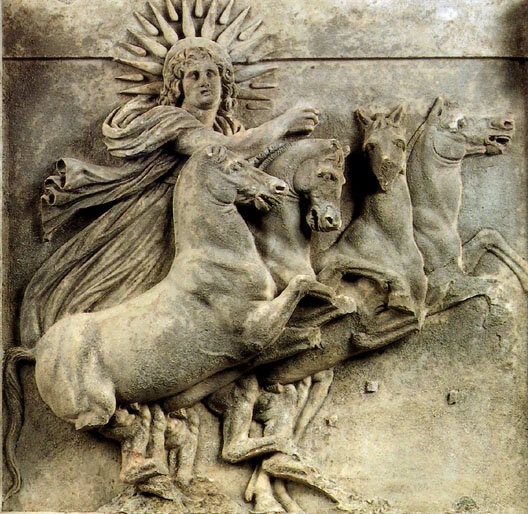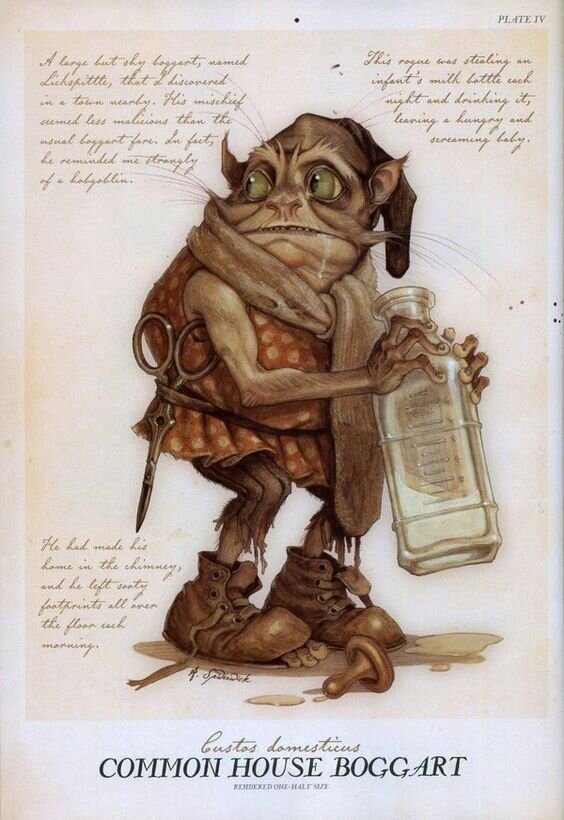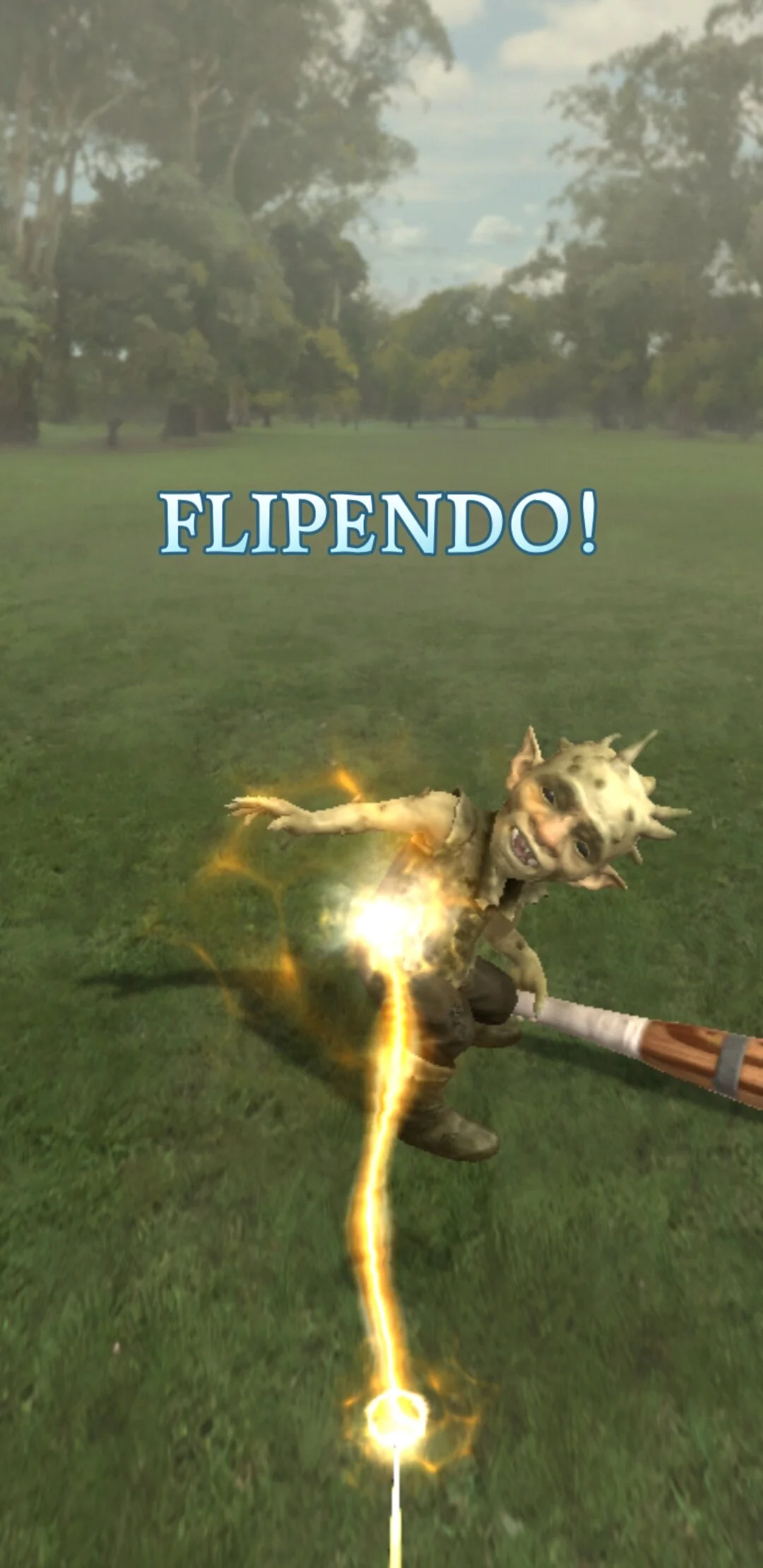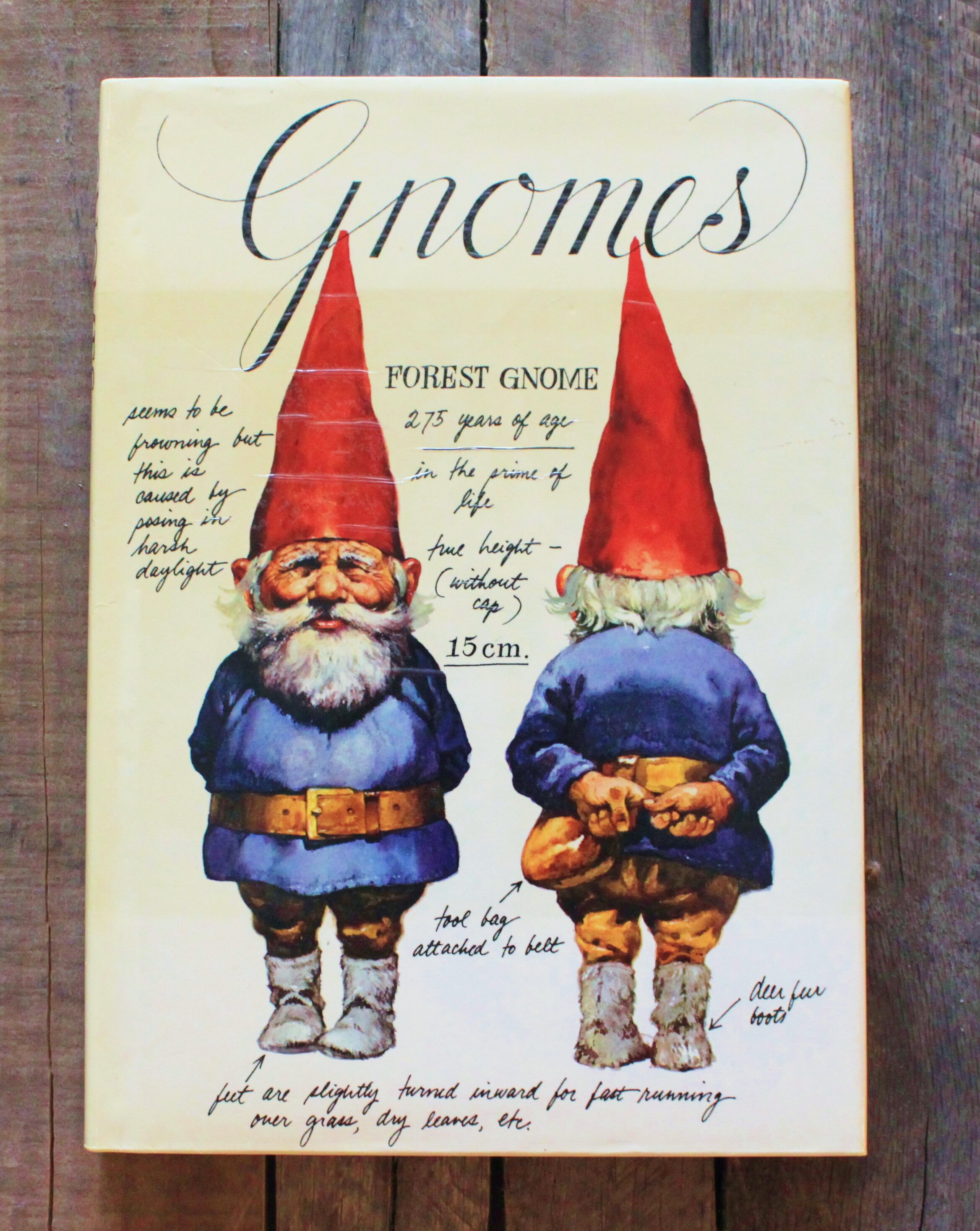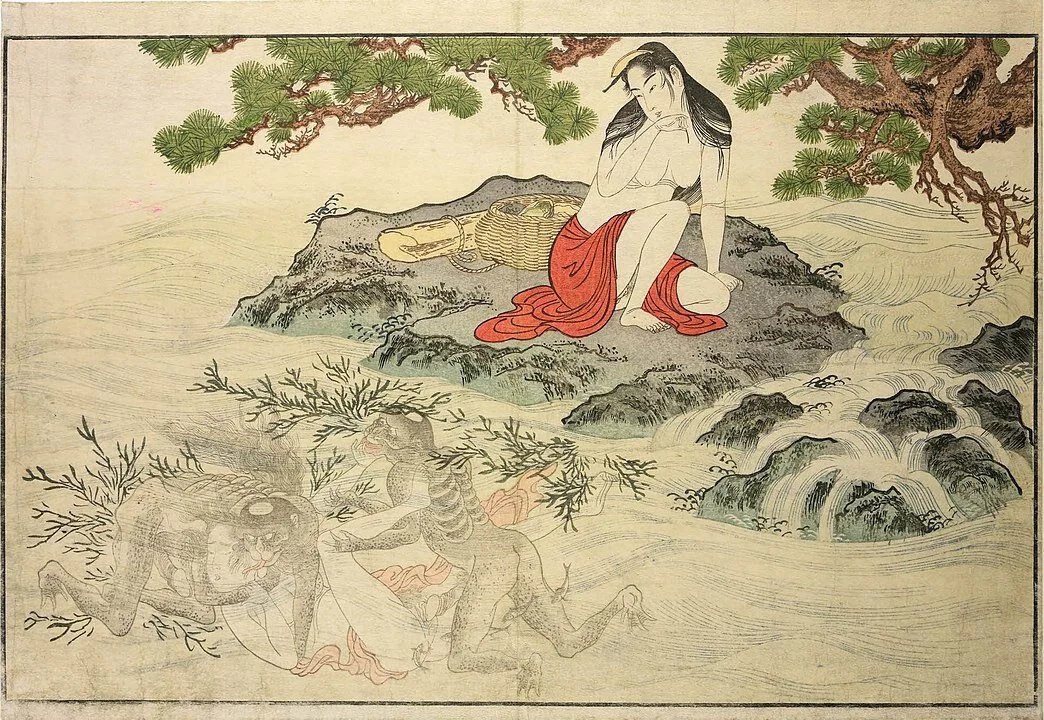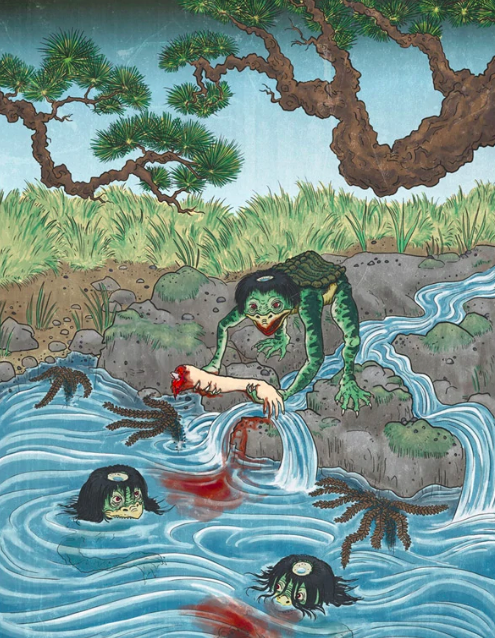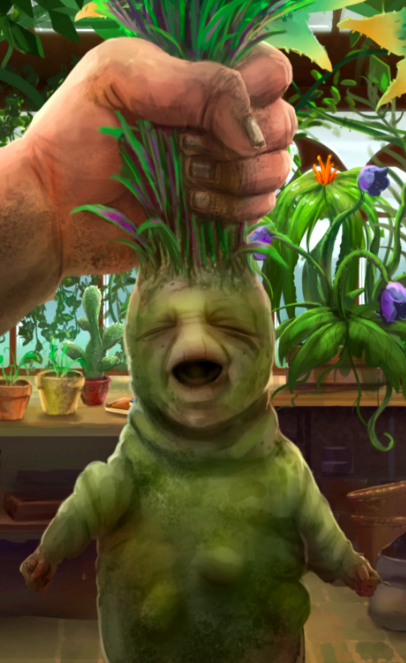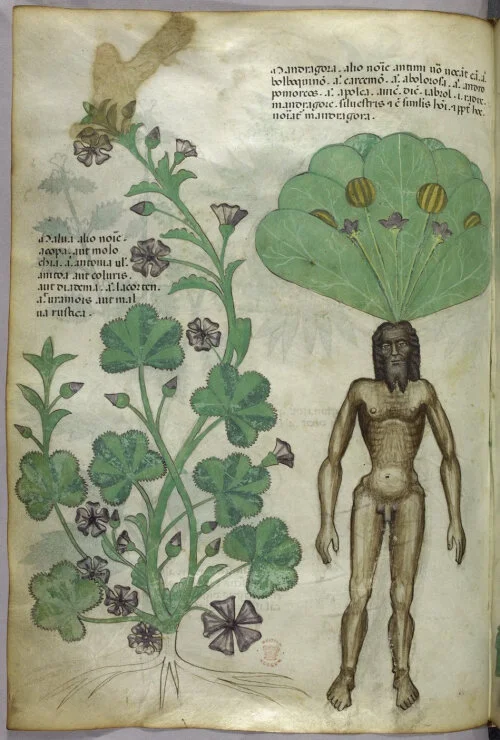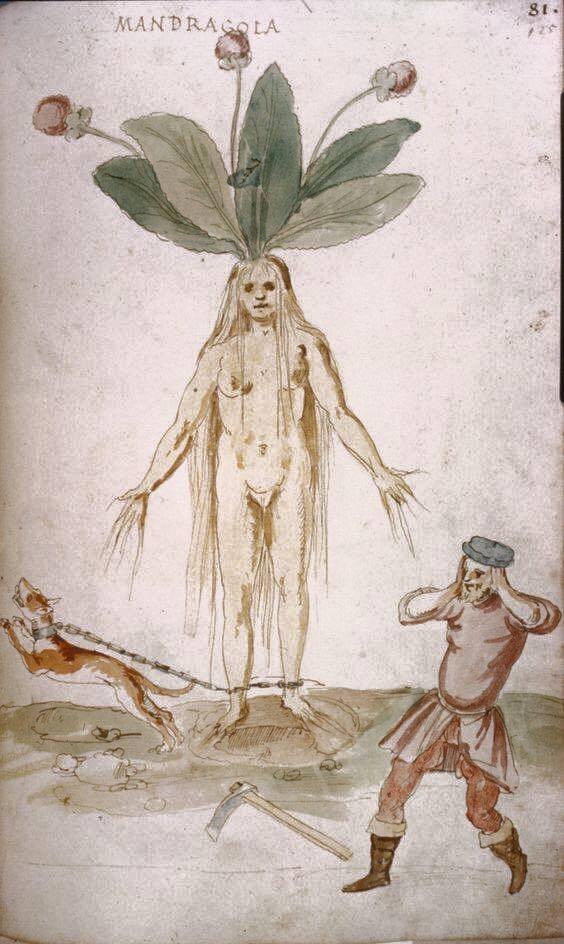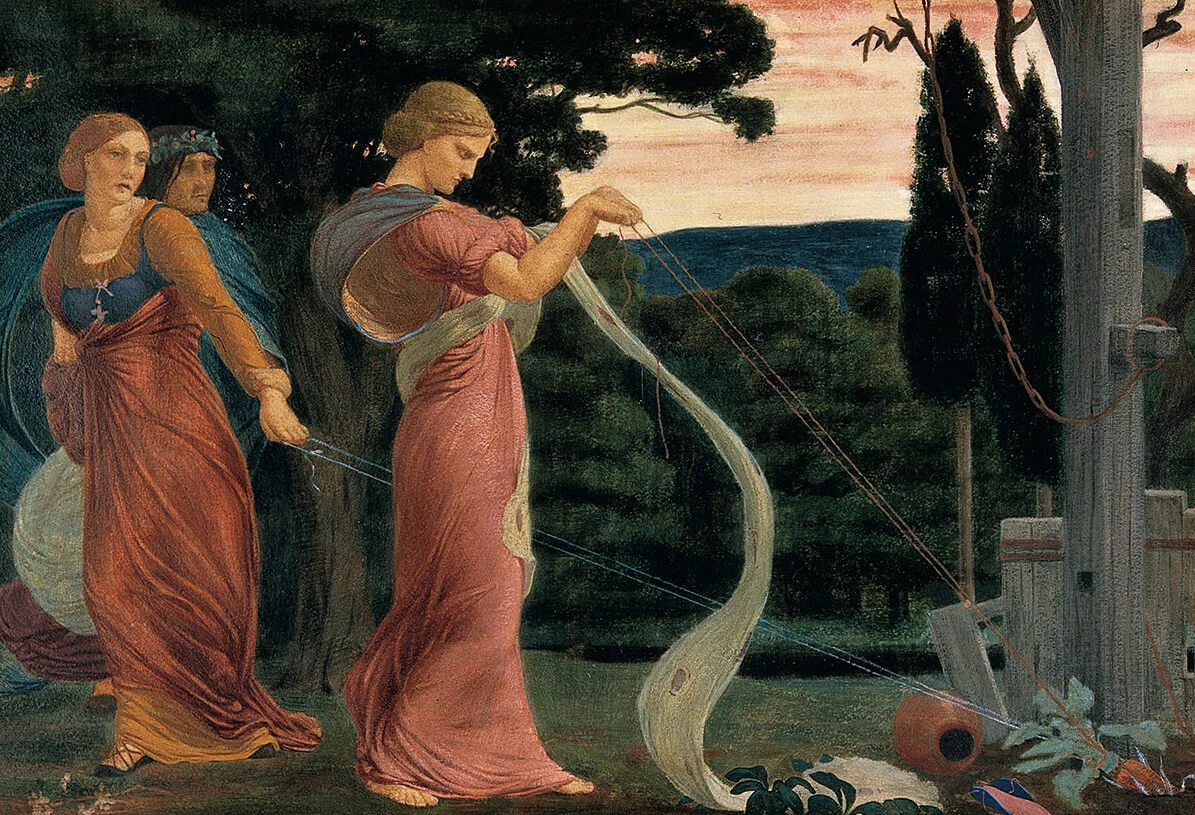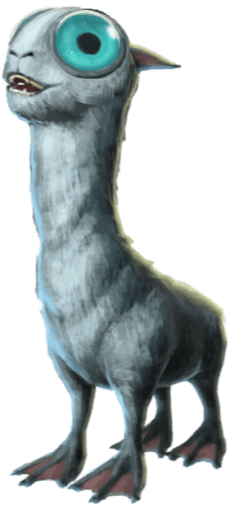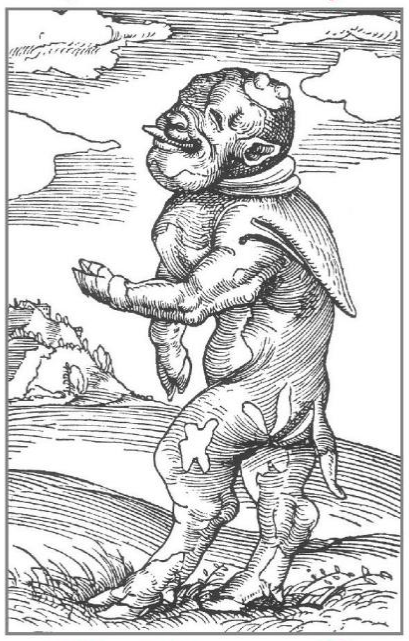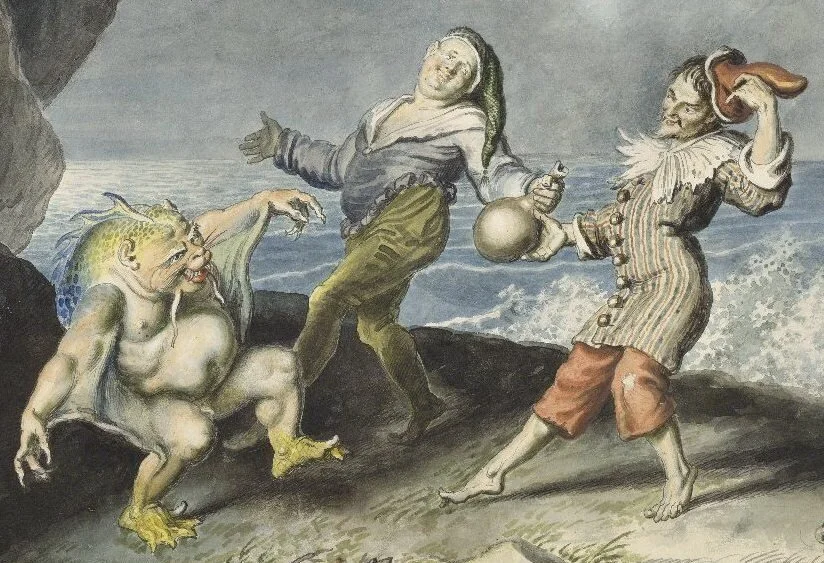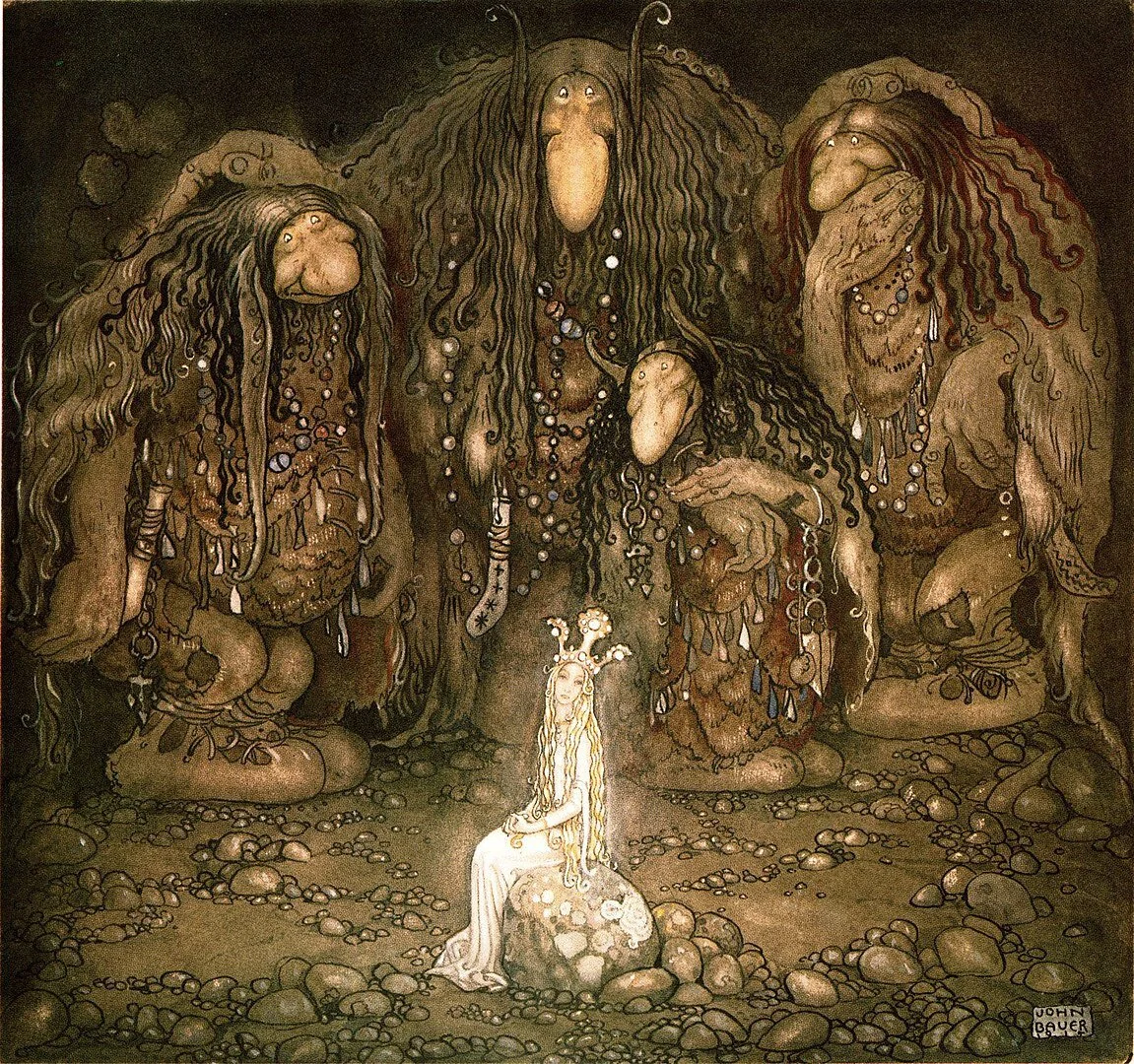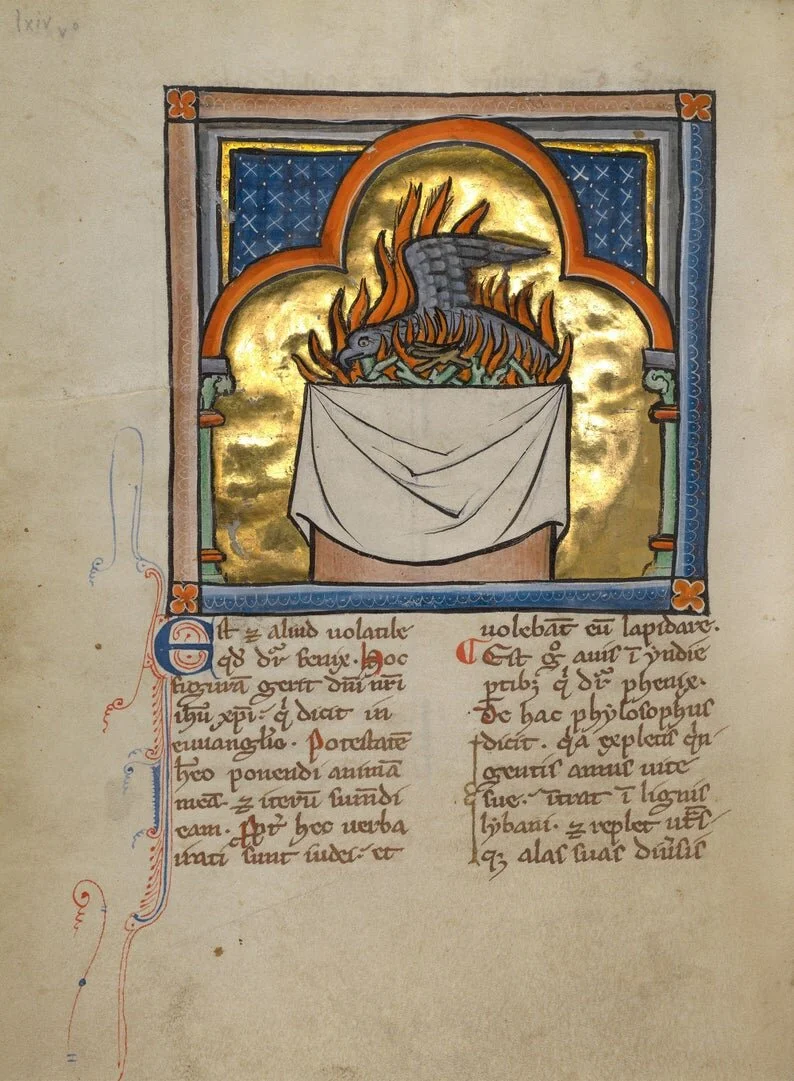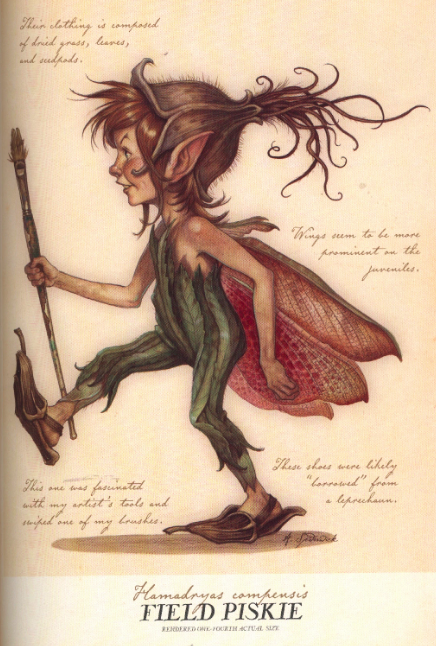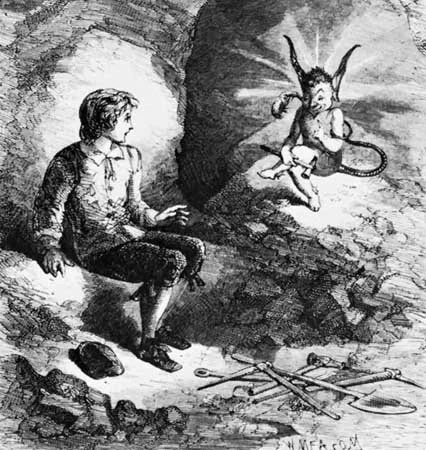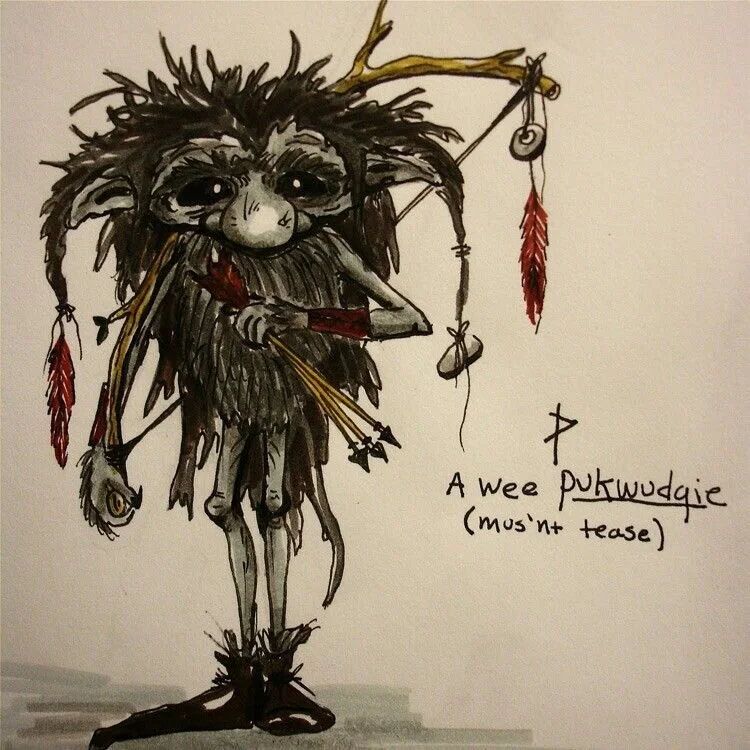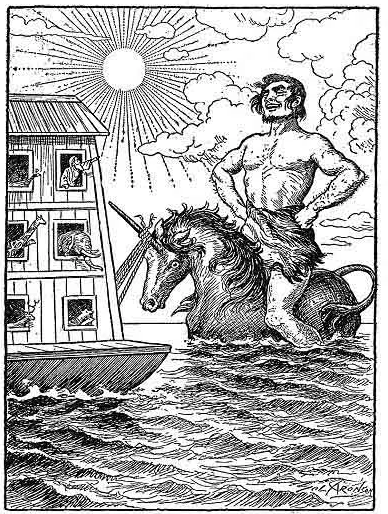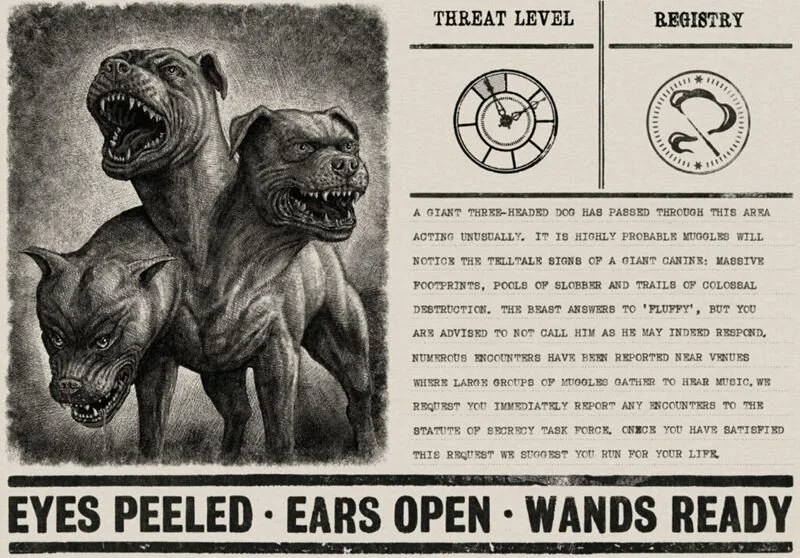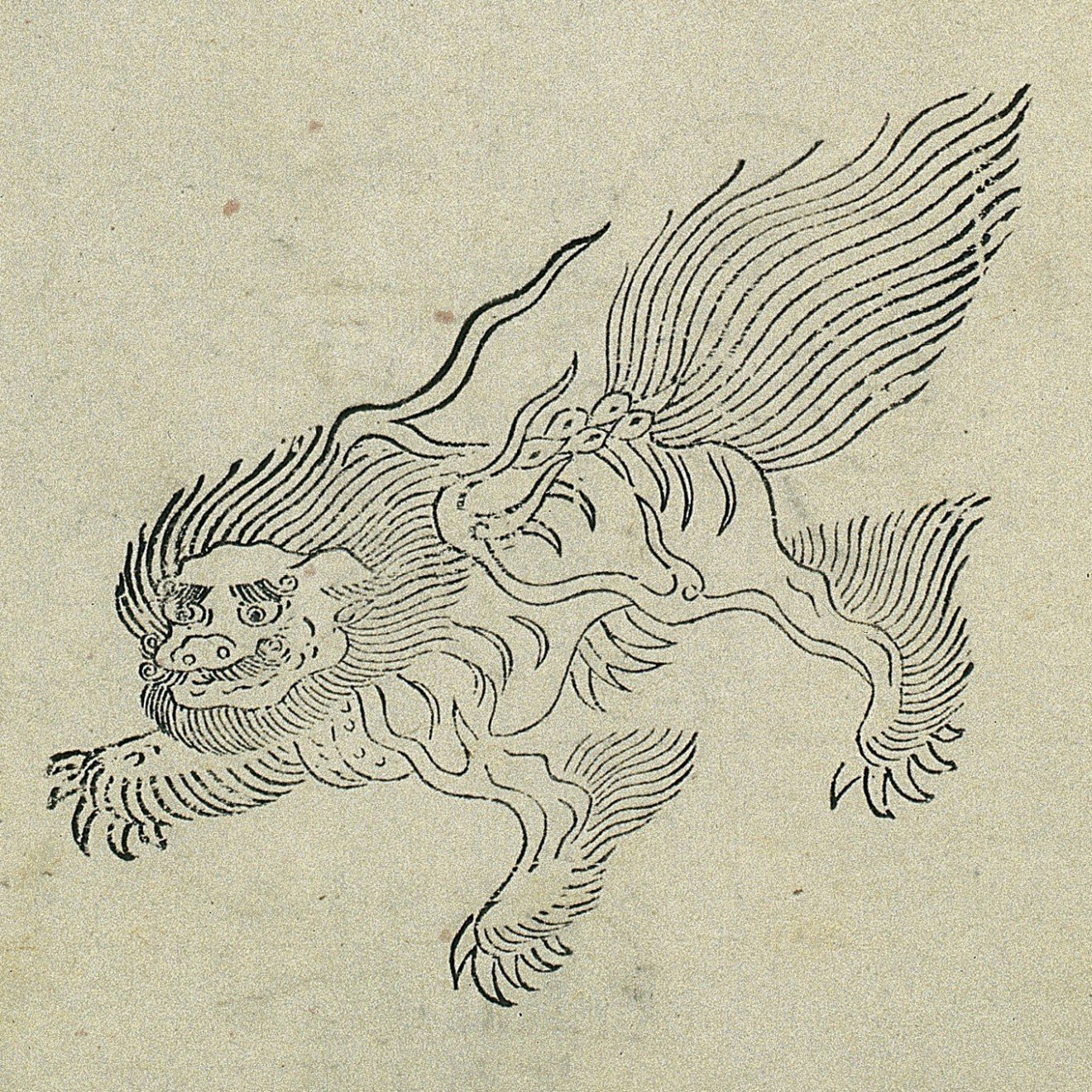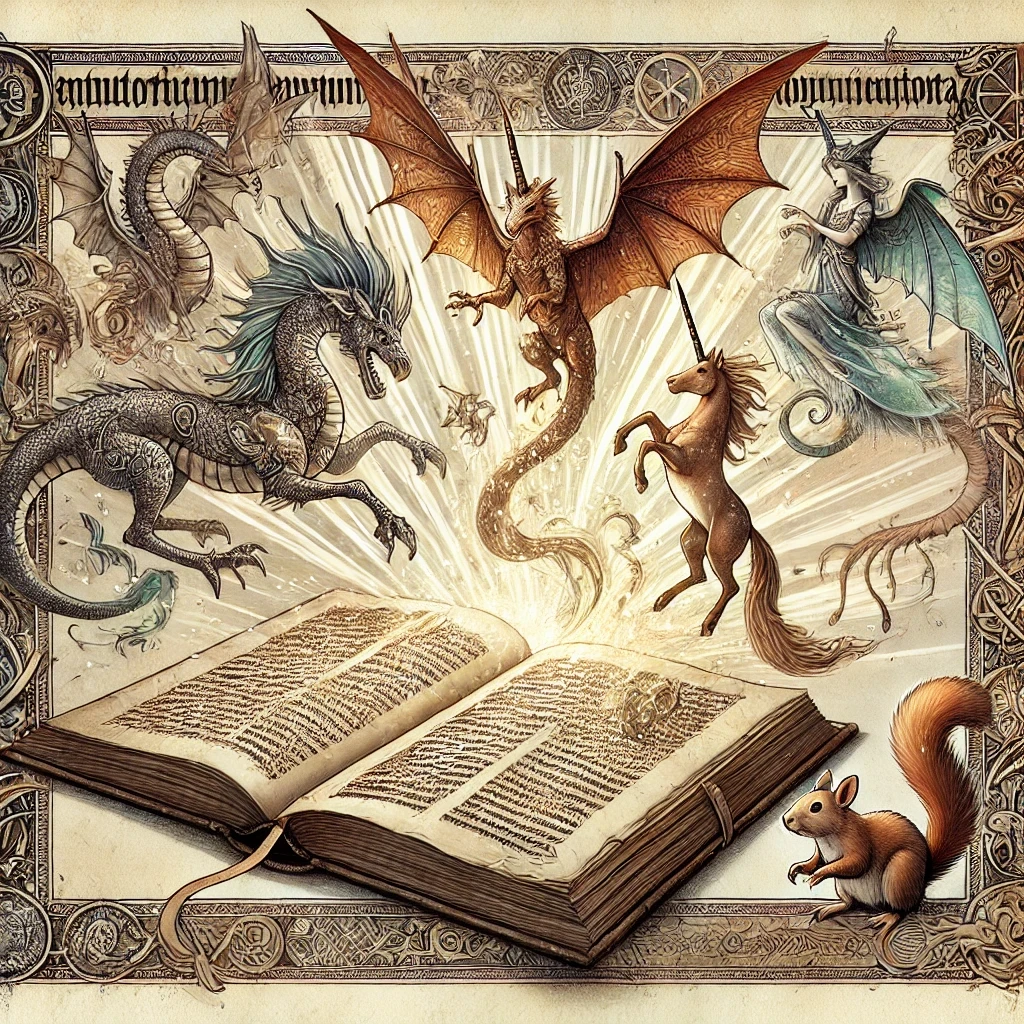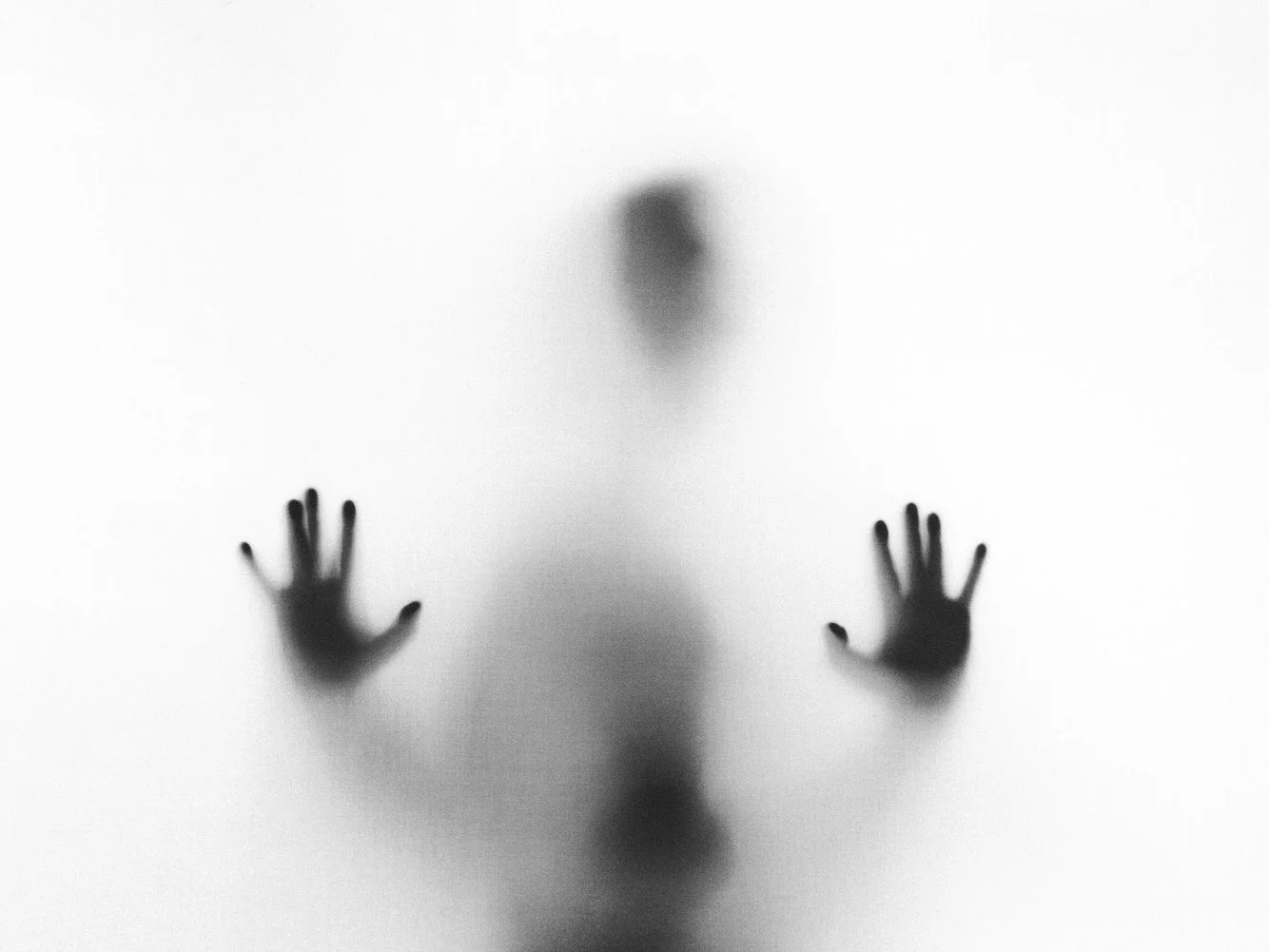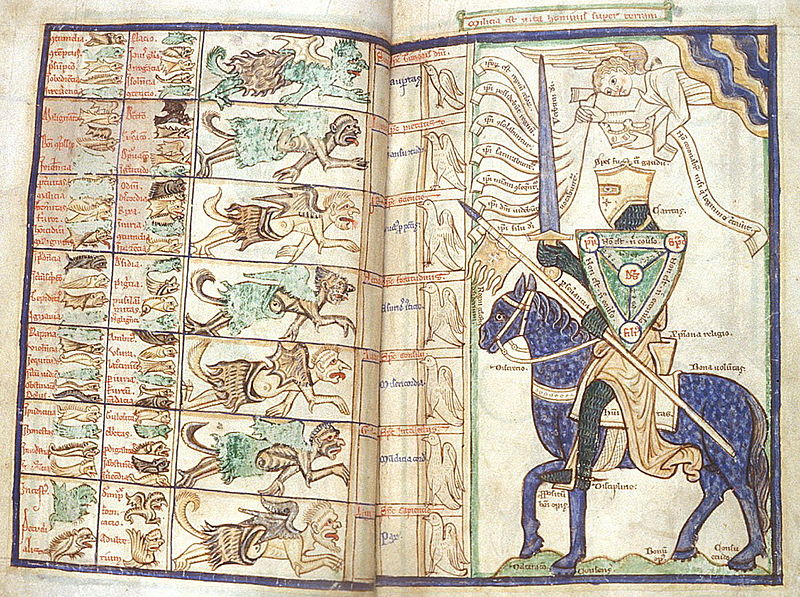What magical creatures come from folklore — and did the augmented reality game get the details right? A glossary of famous monsters, including gnomes, hippogriffs, leprechauns, mandrakes, phoenixes and trolls.
Many of the creatures from the mobile game Harry Potter: Wizards Unite have their roots in actual folklore.
Harry Potter: Wizards Unite features some monsters we know well — vampires, werewolves, unicorns and the like — but there are some odd ones you’ll encounter as well. Some of these creatures spring entirely from the impressive imagination of J.K. Rowling, such as those naughty Nifflers and dreadful Dementors.
But many of the monsters that appear in the addictive AR game have their origins in folklore and mythology from around the world.
“Some kappa are pranksters, making fart noises and peeking under kimonos.
But others are dangerous, drowning livestock, eating children and raping women.”
The Abraxan winged horse from the Harry Potter universe is based on one of the flying steeds that pulled the Greek sun god Helios’ chariot across the sky.
Abraxan
I’m not sure who would want to drink a potion with horse hair in it, even if it does make you stronger in battle. But Abraxan hair is one of the ingredients in the Strong Exstimulo Potion in the Wizards Unite game.
A little digging reveals where Rowling got the inspiration for these winged steeds: Abraxas was one of four immortal horses that pulled the sun god Helios’ chariot across the sky each day in Greek myth.
A depiction of a boggart from The Spiderwick Chronicles. They can change their shapes at will.
Boggart
Many of the Foundables in the game must face their worst fears when a shapeshifting boggart emerges from its cabinet. Clever Ron is terrified of spiders (like me), but once he casts Riddikulus, roller skates suddenly appear on all eight legs of the arachnid-shaped boggart, causing the creature to slip and bumble in all directions and making it more comical than creepy.
“The world is full of fairies, and if anyone tells you it isn’t, don’t you believe them.” So begins this helpful tome, published in 1956.
Boggarts love to cause mischief, like taking a baby out of its crib.
In English folklore, boggarts are mischief-makers, pulling the covers off you when you sleep, moving furniture, turning milk sour or even taking a baby out of its crib and placing it on the floor. They typically don’t hurt humans, though the threat of throwing a child down a boggart-hole often worked wonders in getting them to behave. Because boggarts are described in such differing ways — human-sized, able to fit in your palm, resembling an animal, invisible — these monsters are believed to be shapeshifters.
The creepy Erkling from Wizards Unite looks like a demented cousin of Jack Frost.
Erkling
In the game, these hideous creatures, with their skeletal frame, large red eyes and nose like a misshapen carrot, attack you with blowdarts.
Saying that you won’t dance with a erlking or join it in fairyland could be the last thing you ever do.
Erlkings are often shown as crowned, flying spirits following those on horseback.
Rowling transposed two letters, drawing inspiration from the erlking, a woodland spirit of Scandanavian and Germanic origin. Based on their depictions in illustrations and paintings, they appear as humans, wrapped in flowing robes and flying, ghostlike, above those on horseback. Sometimes an erlking wears a crown, in reference to the origin of the word, which means “elf king.” While similar creatures are mere tricksters, erlkings are willing to kill humans for doing something like refusing to dance with them or venture into fairyland. Others are said to prey on children. But it could also be that erlkings are merely omens of death, appearing to those doomed to soon die.
This cheeky Gnome Confoundable is waving a fart at us!
Gnome
Forget those statues in your garden of a small humanlike creature with a white beard and rosy cheeks, dressed in a blue tunic and pointy red cap. The gnomes of Wizards Unite have mottled green skin and horns atop their heads. They flounder around in a comical manner, and I can’t help but laugh no matter how many times I see that one gnome wafting its stinky fart in my direction to keep me from the Beater’s bat.
Wally stole — er, permanently borrowed — this book from his neighbors, knowing he’d appreciate it much more than they would.
Gnomes are diminutive creatures of the earth and mountains from European folklore. These shy supernatural folk avoid humans but befriend birds, rabbits, foxes, hedgehogs and squirrels (though they have a particular dislike of cats). They can move through stone as easily as we do through air. Some tales say they turn to stone in the sun, which could explain why it’s only during the nighttime that they sneak out to help with gardening.
Hippogriffs, part eagle, part horse, can be dangerous!
Hippogriff
Many of us are familiar with Buckbuck, whom Harry and his friends save from execution and is one of the Foundables from the Forbidden Forest in the Wizards Unite game.
In this 1824 painting by Louis-Édouard Rioult, a knight named Roger, riding his hippogriff mount, saves a woman, Angelica, from a sea monster.
A hippogriff is the offspring of a mare and a griffin, itself a magical creature. Because griffins typically hunt horses, hippogriffs are extremely rare and became symbols of something deemed impossible. When the two creatures do mate, the result is a mishmash, with the forefront of an eagle and the hind quarters of a horse.
When Mare and Griffin meet and mate
Their offspring share a curious fate.
One half is Horse with hooves and tail,
The rest is Eagle, claws and nail.As a Horse it likes to graze
In summer meadows doused in haze,
Yet as an Eagle it can fly
Above the clouds where dreams drift by.With such a Beast I am enthralled,
The Hippogriff this beast is called.–“The Hippogriff” by Arnold Sundgaard
They’re able to be tamed and make swift steeds, as many a knight and wizard has learned.
The Horned Serpent you must battle in Harry Potter: Wizards Unite
Horned Serpent
One of the Oddities that’s a bit more difficult to defeat, this monster is exactly what its name describes: a giant snake with — you guessed it! — horns. It’s also one of the four houses at Ilvermorny, the unfortunately named U.S. equivalent of Hogwarts. Horned Serpent students are smarties, most likely making them the equivalent of Ravenclaws.
Many Native American tribes had a version of the horned serpent in their folk tales.
These supernatural spirits were primarily water based and could perform powerful magic.
While these mythic creatures from Native American folklore sometimes travel on ground, they’re most often found in rivers and lakes. It seems that each indiginous tribe has its own version of the horned serpent, but they’re almost always powerful supernatural spirits, with powers ranging from shapeshifting and invisibility to hypnosis and healing. Many are also said to control the weather, causing rain, earthquakes and floods.
Watch out for kappa! They’re known to not only peek up kimonos but rape women as well.
Kappa
The kappa shows up in the Circus Calamitous special event in the game, with a head that seems to hold water like a bowl, barnacles stuck to its skin and a Fu Manchu mustache.
The creature derives from Japanese mythology, described as an amphibian humanoid with webbed feet and hands, a beak and a turtle shell upon its back, dwelling in rivers and ponds.
Some kappa are mere pranksters, making fart noises and peeking under kimonos. But others are dangerous, drowning livestock, eating children (though they’re also fond of cucumbers) and raping women.
The turtle-like kappas’ weakness is the dents on top of their heads, which must always be filled with water.
They do indeed have a small bowl-like dent in their heads called a sara, the source of their magical powers, which must always be filled with water. If they’re on land and you refill its sara, a kappa will be indebted to you for life.
James Browne’s leprechaun is a cobbler and has a pot of gold at the end of a rainbow.
Leprechaun
These little buggers throw clods of dirt at you in Wizards Unite, making it oh-so-satisfying when you cast a spell that sends one flying into the air.
Leprechauns often have treasure — but they’ll do their best to trick you out of getting it.
The Harry Potter game loves its diminutive tricksters, so it’s no surprise leprechauns are featured. These creatures from Irish folklore are quite well known to Americans, thanks to St. Patrick’s Day — though the children’s cereal Lucky Charms has a part to play as well. You can easily picture a leprechaun: a small humanoid with a red beard and a green outfit, from its top hat to its buckled shoes. It wasn’t until the 20th century, though, that the color scheme turned to green — originally, leprechauns dressed in red.
This leprechaun on a vintage St. Patrick’s Day card is probably drunk.
These creatures haunt wine cellars and, playing to a stereotype about the Irish, are famous drunks. In many cases, they’re shoemakers, and you’ll find their pot of gold at the end of a rainbow. If you capture one, you can usually get him to hand over his treasure. Some tales say that those who catch a leprechaun will be granted three wishes. But beware: These naughty fairies will do everything they can to trick you out of your reward.
A baby mandrake root as seen in the Hogwarts greenhouses.
Mandrake
Who can forget the scene where Harry and his Hogwarts classmates must pull screaming baby mandrakes out of a pot, being sure to wear earmuffs as protection from their horrific wails?
Mandrakes were popular inclusions in medieval manuscripts.
It’s handy to have a dog you don’t like around when harvesting a mandrake.
These unusual plants actually exist — though it’s highly doubtful that they spring from the fat, blood and semen of a hanged man. Mandrakes are a member of the nightshade family and have hallucinogenic properties. Their roots often form humanlike shapes, leading to the belief that they held various powers over the body.
Dioscurides, a first century Greek physician, states that mandrake boiled in wine was used as an anesthetic in Ancient Rome. Too much, though, could be fatal. And the barren Rachel of Genesis seems to have finally gotten pregnant thanks to the magical properties of the mandrake.
This powerful plant could bring good fortune, riches or power. Slip one shaped like a baby under your pillow and you might conceive a child. Put one that resembles a woman into your pocket, and that gal you’ve got your eye on is sure to fall for you.
The humanlike mandrake root was said to emit a fatal screech when pulled out of the ground.
These ladies are using string to yank out mandrakes — I sure hope they have their ears plugged with wax!
Because the plant emits a fatal shriek when uprooted, harvesting it was a dangerous activity. The only way to safely go about this is to plug your ears with wax and tie one end of a rope around the mandrake and the other to a dog. Throw a treat, which the dog will chase after — yanking the mandrake root out of the ground. Of course, the mandrake will emit its lethal scream, killing the poor doggie instantly (though I’m not sure why you can’t try plugging the pooch’s ears with wax as well).
The adorable mooncalf from Wizards Unite
Mooncalf
No matter how many times I see that poor little guy, with its huge blue eyes, chained up in the game, my heart breaks a little. Sure he’s a misshapen beast with webbed feet, but he’s downright adorable in his way.
The moon could botch a pregnancy, resulting in a horrifically deformed creature called a mooncalf.
Mooncalves in folklore aren’t always bovine: Perhaps the first reference dates back to Shakespeare’s play The Tempest, where the deformed creature Caliban is said to be the offspring of a witch and a devil.
Poor Caliban, a mooncalf created by Shakespeare
Caliban and a couple of other characters from The Tempest
The beasts get their name from the belief that the moon can exert a sinister influence over a pregnancy, resulting in a child that’s monstrously deformed, pale and mentally deficient.
A Mountain Troll Confoundable isn’t too fond of the Flesh-Eating Slugs (but really, who would be)?
Mountain Troll
In the mobile game, these dimwitted, lumbering giants guard numerous Foundables, including the Mirror of Erised, which reveals that their heart’s desire is…a female of the species. Trolls — they just want to be loved, too.
Trolls from a 1915 illustration by the Swedish artist John Bauer
Trolls originated in Norway, where they’re a proud part of the national heritage — despite being hideous and cruel monsters (though the females are often said to be quite comely). Wizards Unite and the world of Harry Potter got one thing right about them: They’re great of strength and weak of brain. The good news is that because trolls are so stupid, if you’re caught by one, you just might be able to trick your way out of danger. If you’re not clever enough, though, you could get smashed by a tree used as a club or crushed by a stone hurled by a troll. Or, you might be the troll’s next meal.
Duke and Wally got attacked by the trolls at the Morton Arboretum outside of Chicago, part of a fun exhibit by Thomas Dambo.
Their skin is gray and tough as stone, their hair wild and unkempt. Like the folklore concerning gnomes, trolls will turn to stone if caught in the sun’s rays. Some of the mountain outcroppings in Norway are the remains of unlucky trolls.
Trolls that get caught out at sunrise turn instantly to stone.
In some tales, trolls have a particular dislike of Christians and never pass up a chance to wreak havoc on a church — perhaps because church bells are said to ward them off. (Incidentally, they also run in terror from thunder.)
The phoenix gets consumed in flames, only to be reborn from the ashes.
Phoenix
Dumbledore’s companion phoenix is named for Guy Fawkes Day, a strange British holiday with pagan origins that involves bonfires and the burning of an effigy.
That’s because the famous headmaster of Hogwarts’ phoenix shares a bizarre trait with the mythological creature: After living for 1,000 or so years, the gorgeous eagle-like bird grows old and frail before finally bursting into flames. But fear not — the phoenix will be reborn from its ashes, and the cycle will continue. That’s why phoenixes are associated with resurrection.
Phoenix tears are believed to have healing powers, and no one can tell a lie when this creature is nearby.
A page from a medieval bestiary shows a phoenix. Christians liked how the fabled bird symbolized resurrection.
The phoenix is said to have come from Paradise. Its fable began in Arabia and became popular in Ancient Greece and Rome. The majestic bird is covered in brilliant feathers of red, purple and gold. Its tears are said to have regenerative powers, and some say no one can tell a lie when the bird is near.
The pain-in-the-ass pixies you’ll find throughout the Wizards Unite game
Pixie
In the game, these little pests are hard to aim at, as they flit about during challenges — but they’re usually pretty easy to defeat once you land a shot.
Pixies, a variety of which is shown here, from The Spiderwick Chronicles, really just wanna have fun.
This source claims that pixies choose to look like hedgehogs, though most say they have wings like a butterfly or dragonfly.
While the pixies of Harry Potter are troublemakers, that’s not how they’re depicted in British folklore. The diminutive fairy-like creatures are giddy merrymakers who will give you a blessing if you recite a poem or present them with a pretty ribbon (they’re not good at making clothes, so they tend to dress in rags). Pixies sometimes have blue- or green-tinted skin, pointed ears, and wings like those of a butterfly or dragonfly.
One of Halbot K. Browne’s illustrations from the 1854 book A Peep at the Pixies by Anna Eliza Bray
Their magic can make a child smile, a maiden dance or a traveler lose their way (indeed, some disoriented voyagers would gripe about being “pixy-led”). Plants near them grow at an accelerated speed.
Whatever you do, don’t make fun of a pukwudgie. They’re not typically malevolent, but they could cause great harm if you don’t treat them with respect.
Pudwudgie
Rowling offers a variant spelling of the Native American creature known as a pukwudgie. These spirits of the forest are gray-skinned, about 3 feet tall and resemble humans, aside for their bulbous noses and enlarged ears. Like many other fey creatures, they’re sometimes mischievous, sometimes malicious — especially to those who don’t treat them with respect. Their magical powers include being able to turn invisible, confuse people, shapeshift into cougars or other dangerous animals and harm a person with a stare. A particularly vile pukwudgie might push you off a cliff, shoot a flaming arrow at you or kidnap your child.
No one can seem to agree on exactly what a re’em looks like.
Re’em
If you want to brew an Exstimulo potion, you’ll have to scoop up little pools of re’em blood. Who knew this was an actual creature from Jewish folklore?
Like many of these monsters, there’s a debate about what a re’em actually looks like. One thing’s for certain: It’s massive. Some sources interchange it with a unicorn, but many describe it as an ox-like creature.
One story about Noah’s Ark tells of a unicorn-like re’em being towed behind it because the giant beast wouldn’t fit on the boat.
A Jewish tale says that there are only two re’em at any given time: one male and one female. For 70 years, they exist on opposite sides of the Earth, but then come together to mate — after which the female slays the male with a single bite. When she finally gives birth, her stomach bursts open, killing her instantly. But she always gives birth to twins: one male, one female. They head off in different directions for 70 years, until…well, you know the drill.
Evidence points to the re’em being a giant aurochs, like those painted at the Lascaux caves.
Another story tells of King David, back when he was a shepherd. He climbed upon a re’em, thinking it was a mountain. He told God that he would build Him a temple as high as the re’em itself if he could get down safely. God sent a lion, the king of the beasts, and when the re’em bowed down in submission, David hopped off.
An alert for Fluffy, the Three-Headed Dog once cared for by Hagrid
Three-Headed Dog
Hagrid never met a monster he didn’t love, and that includes the vicious three-headed hound to whom he gave the ridiculous name of Fluffy.
Cerberus, the original three-headed dog, shown in this William Blake illustration, guards the gates of Hades in Greek mythology.
The original three-headed hell hound was called Cerberus. It guarded the entrance to Hades, devouring anyone who tried to leave the underworld. The only person to sneak past this monstrous watchdog was Orpheus, who played music so sweet it soothed the savage beast and lulled him to sleep.
Hercules and Cerberus by Peter Paul Rubens, 1636
The Greek hero Herakles, aka Hercules, had to capture Cerberus as the last of his 12 labors. Despite being bitten by the creature’s snakelike tail, Herakles managed to choke Cerberus until he passed out.
The Wizards Unite version of a zouwu
Zouwu
The zouwu appears in the Circus Calamitous event and was so strange, I had to wonder if it sprung from Rowling’s imagination.
The mythic Chinese zouwu is actually a docile, lucky creature.
But no — it’s a legendary Chinese monster. Despite resembling a fierce big cat (sometimes described as a lion, sometimes a tiger), the zouwu is a gentle, vegetarian beast that’s seen as a good omen. The Harry Potter version has a strange pink tail like a ruffled dress, but in Chinese mythology, it’s only said that the tail is longer than its body. If you ride upon one, you can cover 1,000 miles in a day.
The AR game is even more fun when you know the origins of the creatures that populate its world.
As you battle or rescue various creatures in the Harry Potter: Wizards Unite game, don’t get too caught up staring at your phone. You’ll want to be prepared if you happen to encounter one of these monsters in real life! –Wally


